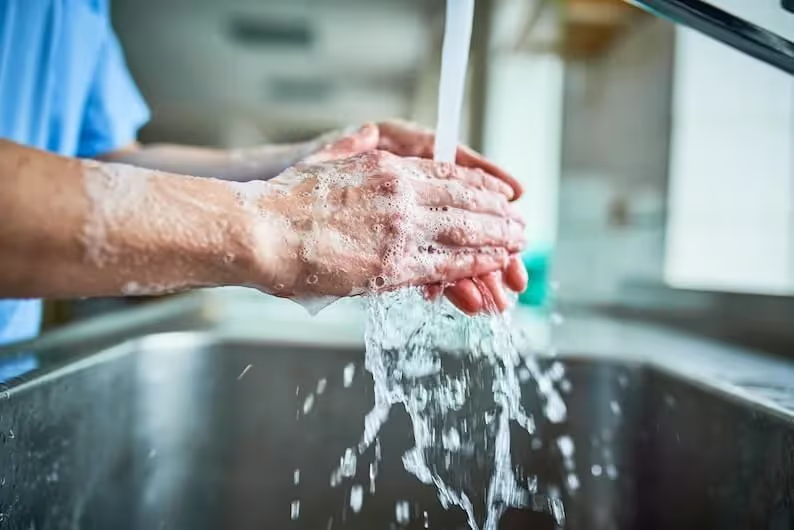Celebrating Global Handwashing Day on October 15th - As we approach the cooler months, it's important to remember a small but mighty action that can have a big impact on your health—handwashing. With Global Handwashing Day coming up on October 15th, there's no better time to highlight the importance of handwashing and why this simple practice is vital, especially for seniors.
Why Handwashing Matters
Handwashing is one of the easiest and most effective ways to prevent the spread of germs, including the flu, colds, and other respiratory infections. For seniors, who may have weaker immune systems, washing hands regularly is crucial in reducing the risk of getting sick. Germs are everywhere—on surfaces, in the air, and even on our skin. Whether you've touched a doorknob, handled money, or shaken hands with someone, germs can easily transfer to your hands. If those germs make their way into your body—by touching your face, eyes, or mouth—you could be at risk of illness.
The Added Importance During Winter and Flu Season
As the weather cools and we spend more time indoors, the chances of catching a cold or the flu increase. Winter months bring a surge in respiratory illnesses, and the flu virus thrives in colder temperatures. For seniors, who are more vulnerable to these illnesses, the stakes are even higher. Regular handwashing during flu season is essential to protect yourself and others. It's a simple step that can help keep you healthy and avoid unnecessary doctor visits or hospital stays.
How to Wash Your Hands Properly
It's not just about washing your hands—it's about washing them correctly! Here's a quick refresher on the best way to wash your hands:
- Wet Your Hands: Use clean, running water (warm) and apply soap.
- Lather Up: Rub your hands together to create a lather. Be sure to get the backs of your hands, between your fingers, and under your nails.
- Scrub: Scrub your hands for at least 20 seconds. Need a timer? Hum the "Happy Birthday" song from beginning to end twice.
- Rinse: Rinse your hands well under clean, running water.
- Dry: Dry your hands using a clean towel or air dry them.
When Should You Wash Your Hands?
Handwashing is important throughout the day, but especially at these times:
- Before and after eating: Helps prevent the spread of foodborne illnesses.
- After using the restroom: Reduces the risk of spreading harmful bacteria.
- After coughing, sneezing, or blowing your nose: Prevents the spread of respiratory germs.
- Before and after caring for someone who is sick: Protects both you and the person you're caring for.
- After touching high-contact surfaces: Includes doorknobs, light switches, and shopping carts.
Hand Sanitizer: A Handy Alternative
When soap and water aren't available, hand sanitizer with at least 60 percent alcohol is a good alternative. While not as effective as washing with soap and water, it can still help reduce the number of germs on your hands.
Join the Global Handwashing Day Celebration
Handwashing is a simple yet powerful tool for maintaining your health, especially during the colder months when the risk of illness is higher. By washing your hands regularly and correctly, you're taking an important step in protecting yourself and those around you from the flu and other illnesses. So, let's celebrate Global Handwashing Day on October 15th by making handwashing a daily habit—because healthy hands mean a healthier you!




